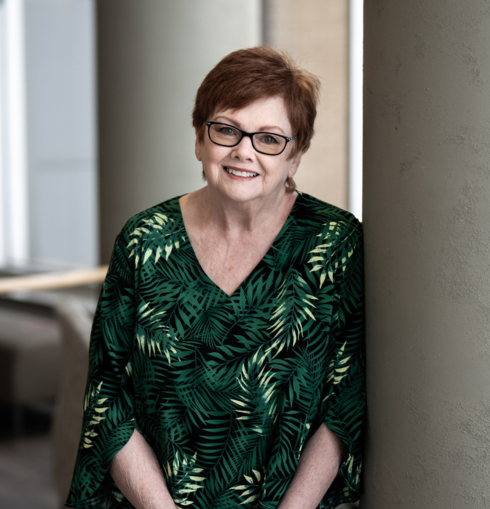
When Marilyn Youell’s husband was diagnosed with cancer, she watched helplessly as treatment brought him to the brink of death. He was a talented musician, but after surgery, he had to relearn how to play guitar. And when cancer took part of his tongue, he learned to sing again.
For ten years, he remained cancer-free.
Then, cruel and relentless, it returned. His doctor gave him two weeks to two months. He passed away in two days.
Two years later, Marilyn was watching TV when she noticed a bump on her arm.
Her family doctor sent her to a surgeon, who removed the spot along with a few lymph nodes. When the biopsy results came back, they revealed she had spindle cell melanoma—a rare and aggressive cancer.
Within a year, she felt more lumps under her arm. A CT scan showed the cancer had spread to her lungs. She was referred to Dr. John Lenehan at the Verspeeten Family Cancer Centre, where she was told it was stage four. Terminal.
Her first instinct was to just accept it. She had already seen everything her husband endured. And given her luck, she didn’t think she had much time left. But her family was devastated—especially her granddaughter, who had already lost her other grandmother to cancer.
Dr. Lenehan explained how chemotherapy is not very effective and comes with many unpleasant side effects. At that time, immunotherapy was used as the standard first-line treatment for melanoma. He also mentioned she would be eligible to participate in a clinical trial where they use fecal microbiota transplants (FMT) to manipulate the gut microbiome and improve the effectiveness of immunotherapy.
“I thought it was an interesting concept to take the gut bugs from a healthy person to boost the immune system of a patient with cancer,” Marilyn says. “I truly believe if we don’t try to find alternative ways of treating cancer, we will never beat it.”
So, she said yes.
The hardest part? Purging her body before receiving the transplant via capsules. But thinking about her husband’s experience pushed her to keep moving forward.
Then she waited, attending her immunotherapy treatments every three weeks.
About halfway through her treatment regimen, her scans showed the cancer was no longer visible in her lungs and the lymph nodes under her arm had returned to normal size and shape.
Five years later, she sat across from Dr. Lenehan, who told her there was a 95 per cent chance the cancer wouldn’t return.
It was news Marilyn never expected to hear.
“They initially told me I only had two to five years to live,” she says with a smile. “I’m now in my sixth year.”
Her family is beyond grateful for the extra time. Marilyn and her son continue to watch baseball games together. She and her daughter carry on their Academy Awards tradition, watching as many nominated films as they can and throwing a party on Oscar night. And she still decorates for every holiday—from Christmas to the Super Bowl—just to see the joy in her grandchildren’s eyes when they walk into her home, decked out for the occasion.
She also keeps up a friendly rivalry with Dr. Lenehan. For almost 6 years, she’s shown up to every appointment proudly wearing something with the Toronto Maple Leafs logo—because she knows he is a Detroit Red Wings fan.
Marilyn deeply appreciates Dr. Lenehan’s care and the generosity of donors, whose support made the FMT trial possible.
“If we’re ever going to cure cancer, research is so important,” she states. “If you ever doubt whether your donations make a difference, I’m proof they do.”
